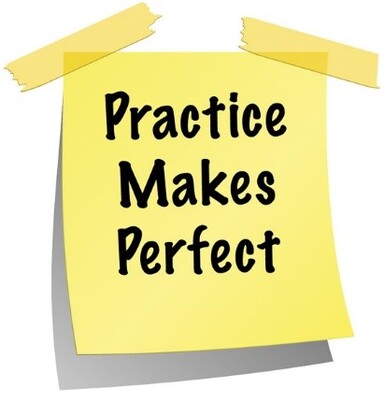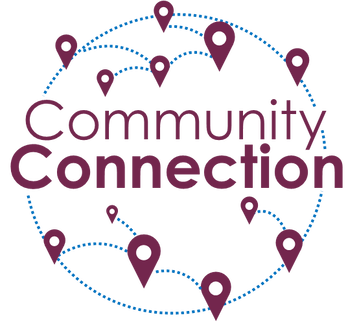- Self-assess & consider fit
- Gather intel & information
- Start early preparing application materials
- Cultivate peer support
- Consider diverse career options
Before any career search process, you should spend time self-reflecting on your skills, interests, and values. Consider what types of roles and employers would best fit where you are in your life. Note that there are many roles in higher education beyond tenure-track faculty and there are many colleges & universities to work at beyond name-brand or research-intensive institutions.
For more see:
What does it take to successfully land a tenure-track faculty position? While the ACRA referenced above assessed the faculty search committee's perspective on hiring new assistant professors, other work that I have collaborated on seeks to present data from the applicant's side.
See A survey-based analysis of the academic job market for more info on our applicant survey findings and variables that were associated with applicants successfully landing faculty job offers as part of the 2018-2019 job market cycle.
Updated 8/7/2023:
If you were on the assistant professor job market between May 2022 and April 2023 (regardless of the outcome - whether you received a job offer or ultimately accepted one), we would love for you to complete our most recent applicant survey as we seek to better understand how a variety of variables influence one's ability to land a faculty job offer.
In addition, in early August 2023, we launched a data dashboard that allows users to explore some of our faculty job applicant data collected over three job market cycles, 2019-2022. You can use the dashboard to see how a variety of metrics are associated with receiving or not receiving a faculty offer in our data. In addition, you can filter the data by research field, gender, and PEER (Person Historically Excluded due to Ethnicity or Race) status of applicants.
Find links to the survey, learn more about our faculty job market collaboration team, and explore our NEW data dashboard, below.
- For more see my Carpe Careers piece on using informational interviews to assist you in your faculty job search process.
- Publication from the Office of Training and Workforce Development at NINDS:
Myths and facts about getting an academic faculty position in neuroscience
| Once you have a sense of the types of institutions and departments you are interested in working at, you can begin tailoring your application materials to highlight key attributes they value - research, grant-writing, teaching, service, working with undergraduate researchers, collaborating across units, etc. I cannot stress enough how important it is to start early preparing your application materials. You are going to need considerable time to really make them shine but step one is to get your thoughts down on paper early. I would say having most of your initial drafts completed at least two months before the application season begins in August is a good goal. This will then give you plenty of time to revise and tailor as job ads are posted. |
It's important to really think about your vision for your research first before tailoring your materials to a particular institution. I believe you shouldn't try to present the research you think a hiring committee will be excited about but rather research YOU are excited about. You want to be hired based on who you are and what you aspire to be and be OK with the realization that many hiring committees won't see a fit between your interests and theirs. That is OK because fit is so critical in any job search and you want to find it so that you can thrive in your new role and be your true self.
For additional tips and advice on other faculty application documents, see:
- How to Write a Better Academic Cover Letter
- Tips on Writing an Effective Teaching Statement
- Diversity statement resources from UCLA & UCSD
And see the job search resources section of my website for documents I submitted on my own faculty job search, including a research statement for a research-intensive and primarily undergraduate-serving institution.
If you are currently a postdoctoral researcher interested in a faculty career, you should join Future PI Slack NOW. This community of nearly 4,000 postdocs is AMAZING and a great place to solicit advice and feedback from your peers. There is a channel in the Slack group devoted exclusively to reviewing one another's job application materials (#jobapp_reviewers) that you can join to solicit and provide feedback. It is a truly great way to see a variety of examples of faculty application materials and get additional feedback on your own documents from individuals who will often be outside your discipline. This type of feedback is critical as asking your current supervisor or lab-mates for feedback may not give you a sense of how someone outside your research domain views your documents...and faculty search committees will almost certainly be composed of a diverse set of individuals lacking a deep understanding of your particular area of research focus. So, getting broad-based feedback allows you to refine your documents to convey your points effectively to a wider audience.
You can also form your own peer support group at your institution or amongst others in your network. Find trainees also planning to go on the job market soon to meet with regularly to discuss your experiences and share your approach to the job search (where did you find job postings?, how are you handling requesting letters of reference?, etc...). Ideally, having this group be composed of individuals going on the job market this year and those planning to go on the job market next year is a great way for trainees a year out from applying to learn from those going through the process this year. As the hiring cycle progresses, your group can think learn from those who have had interviews with search committees about their experiences and serve as a space for feedback on the job talk and chalk talk (and see this presentation or this one on YouTube for more) your group members plan to deliver at institutions who have invited them for a final round interview. Through this experience, you'll gain a wider perspective on navigating a job search as you learn and support one another.
While a faculty role may be what you aspire to, it is always good to have options for the next step in your career. Consider using self-assessment tools such as myIDP, ImaginePhD, or ChemIDP to learn about the breadth of career paths that could fit your skills, interests, and values. Make plans to develop the skills and networks needed to pivot into careers beyond the tenure-track. There are so many amazing careers out there to pursue and remaining open to those possibilities will help you realize that there is no one path to "success" when it comes to your career.
Best of luck with your faculty job search this year!
Inside Higher Education Carpe Careers Article from August 2023





 RSS Feed
RSS Feed